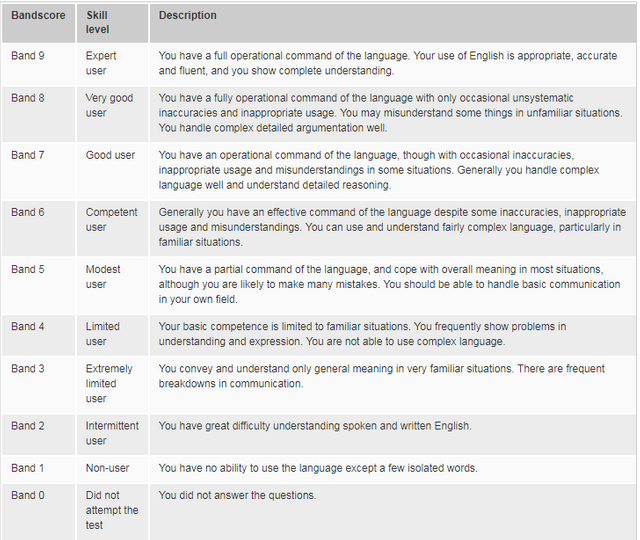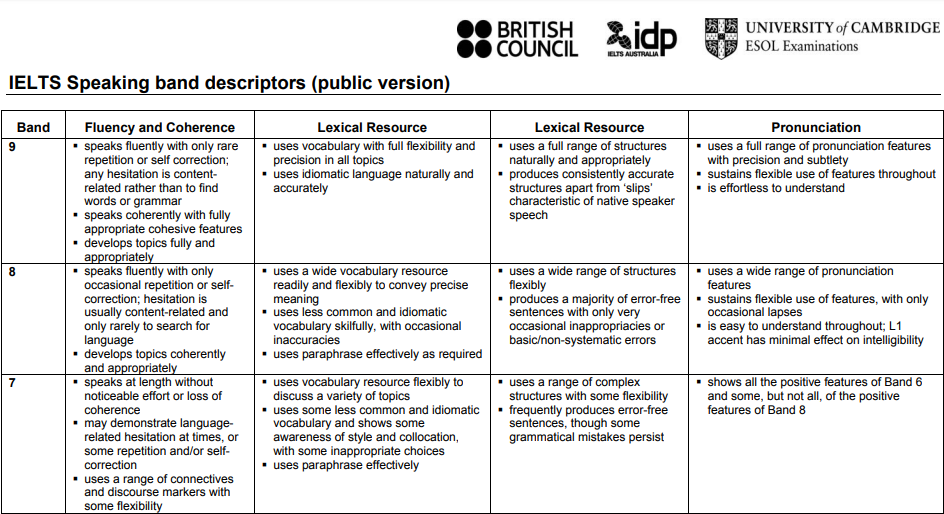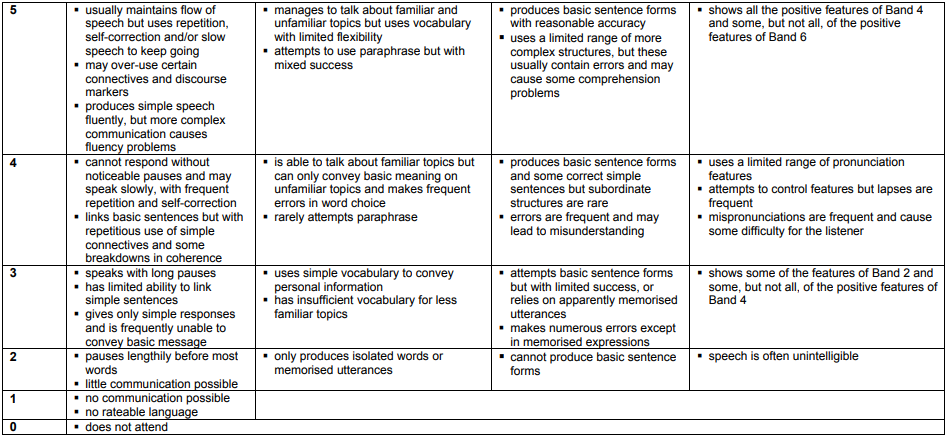HOW TO ACE IELTS SPEAKING EXAM & GET A CRISP BAND 9.0! | FIRSTHAND EXPERIENCE
If you're someone whose native language is not English and plan to study or migrate in a country where English is spoken as a first language, you need to pass The International English Language Testing System or IELTS.
UNDERSTANDING IELTS

This exam evaluates all of your English skills from reading, listening, writing, and speaking. This English examination is made to understand or reflect how you use the English language at work, school, or your new life in a country where English is spoken.
Types of IELTS MODULE
There are two types of this examination. One is called Academic Training which is for people who want to study or those who want to work in the medical field abroad. To those who want to work in medical industry, Academic Training is usually what they need as it is more complex especially in Reading and Writing sections. General Training on the other hand is for people who want to migrate and apply for residency or work in any industries except medical field.
Who Managed IELTS?
IELTS is managed by British Council, IDP: IELTS Australia and Cambridge English Language Assessment. This was created in 1989.
Scoring System
There is no failure in this exam. An examinee can get a score from 1-9. Overall scores are calculated by adding the scores of Listening, Writing, Reading, and Speaking, then it is divided into 4. Your overall score could be either whole band (5.0, 6.0, 7.0, 8.0, 9.0) or half bands (5.5, 6.5, 7.5, 8.5). The table shows the equivalent skills of your overall score.

Source
This post will only focus on SPEAKING. I will talk about how IELTS Speaking is done, how the examiner evaluates the examinee's oral communication skills, and the techniques needed to get straight Band 9.0 based on my experience.
UNDERSTANDING THE THREE PARTS OF IELTS SPEAKING
There are three parts of IELTS Speaking.
PART 1 is considered as the easiest as the questions are basically simple like talking about your hometown or anything that relates about you and life in general.
Examples:
Opening Questions:
Where are you from?
Do you work or are you a student?
SLEEP
Do you like sleeping?
How much sleep is enough for you?
Who needs more sleep, young people or old people?
EATING HABITS
How many times do you eat a day?
What food do you like?
Did your eating habits change over the years?
Part 1 takes around 4-5minutes. And 10-12 questions are asked.
PART 2 is challenging as the examinee will do a monologue based on the cue card given. A cue card is where the main question is written with sub-questions. During the exam, the examiner gives the cue card to the examinee, a pencil, and a piece of paper for him to take notes.
After a minute of preparation, the examiner will get the cue card back and ask the examinee to start talking for 1-2 minutes based on the question.
Example:
Describe a tourist attraction you once visited. You should say:
When you visited it
Where is it situated
Who you went with
and say what about it you like the most
When the time is over, the examiner will stop the examinee and ask follow-up questions. This takes around 4-5 minutes in total.
PART 3 is the most challenging among other parts as the questions are more abstract. This is where discussion takes place, an interaction between the examiner and the examinee. This part basically assesses the ability of the examinee to express his ideas or opinions in an organized and direct way.
In this part, the examiner will challenge your answer by disagreeing or asking more follow-up questions and see if you can be flexible enough in defending and explaining your answer further. Questions in this part are actually related to Part 2.
This discussion part takes 4-5 minutes.
SO HOW DID I GET BAND 9.0 IN SPEAKING?
First of all, we need to understand how the examiner evaluates the communication skills of the examinee. There are four criteria that are checked.



Source
EFFECTIVE STRATEGIES TO USE IN PARTS 1, 2, & 3
PART 1
As I have learned, it is warm-up which means making the examinee feels comfortable in using the English language in a familiar situation. It is actually preparing the examiner for the coming Parts 2 and 3 which are more challenging.
During my exam, I made sure that I only gave 2-3 sentences of my answer in this part as what my teacher taught me. No more no less. Since there are over 10 questions that need to be answered and as much as possible all those questions must be addressed, also there's time limit (4-5 min) for this part alone.
For example:
Where are you from?
Answer: Well I come from the southern part of Cebu which is called San Fernando. It's actually 25-kilometers away from the city center. And it's well-known for cement factories.
Notice the italic & bold words. 'Come from' is a collocation or phrase which native English speakers use, 'it's' is a contraction of 'it is' which again English speakers often use, and 'well-known' is an advanced word to popular or famous.
As much as possible you should use phrases and advanced words and the sentences should be free from grammatical mistakes. In addition, you have to pronounce the words clearly and there shouldn't be any hesitation when you deliver your answer.
Another example:
Do you like watching movies?
Answer: Actually, I'm not a big fan of watching films as it makes me feel sleepy. I prefer reading books for it stirs my imagination - I love to imagine the characters and the setting. Also, through reading, I can improve my comprehension skills.
When we were young, we were taught by our teachers to answer in a complete sentence which is patterned with the question, however, in IELTS that is a big NO. You cannot say 'Yes I like watching movies' since you are just copying all the words from the question. You should paraphrase the question, say it in your own words because that means you completely understand the question. Also, use expressions that are advanced such as: I'm a big fan of..., I'm crazy about reading books, instead of 'I like'.
PART 2
I used several techniques in order for me to talk spontaneously, confidently, and in an organized way. This is a must in order to sound pleasant not rough - as some say painful to the ears. As you are given a minute to prepare your answer, write key words as they serve as a guide.
Look at this:
This was my actual task when I took the exam last year.
Well, during my review I already prepared the possible question 'Who is your favorite actress?' I already prepared about Angelina Jolie, I read news about her for me to know some important details of her. During my exam, I got the task to describe someone whom I was inspired, so I just said something about Jolie.
Describe a person whom you are inspired.
who is he/she -> Angelina Jolie
what he/she does -> adopt African/Asian children
how do you know him/her -> movie Salt
explain why he/she is an inspiration to you -> UNHCR Ambassadress
Key words are a must as they help you a lot to sustain talking for 2 minutes. Just by looking at those words you will be able to get an idea on how to make your delivery spontaneous.
TECHNIQUES
1. Embellishment Technique
- add details that are somehow not true, just to make your answer interesting and longer. (It's alright to make up a story, not necessarily a real one, as IELTS is not an examination testing your honesty but your English communication skills.)
2. Digress Technique
- during your speech temporarily leave the main topic and talk something related to it, right after after that, go back in talking about the main topic again. This is to make your answer longer and providing relevant details.
For example:
Describe a thing that you own.
I'd like to talk about A WATCH WHICH I RECEIVED AS MY BIRTHDAY GIFT last year, when I celebrated my 25th birthday. This watch is extremely expensive that I couldn't believe my grandma bought it for me. She actually purchased it when she traveled to Switzerland to celebrate the golden wedding anniversary with my grandpa. I think my grandma is such a lovely, thoughtful, and kind woman I've ever known. She never fails to surprise me during my birthdays and other important events. I feel like I'm actually her favorite grandchild. Anyway, this watch is worth $10, 000, it's purely gold-plated on the edges of its squared face. ...
Notice the capitalized words, that part is the main topic. On the other hand, the italic & bold part is where I applied the digress technique.
3. If story Technique
- this is used when you have answered all the guide sub-questions however, you still have plenty of time. If you stop telling a story early like less than a minute or halfway to 2-minutes, the tendency is the examiner will ask you to talk more. So as much as possible, we have to avoid that situation.
This technique is used after you answer all the sub-questions, you will start creating a story with the use of 'If clause', a condition.
For example:
If it wasn't my grandma's kindheartedness, I wouldn't own this high-priced watch. Never in my Iife could I afford buying one as I'm only an ordinary worker...
With that answer, we're hitting two birds with one stone, which means we're able to extend our answer and at the same time we're showing to the examiner that we can manage to use complex grammatical structure by using 'Conditional Sentence' and 'Inversion'. Inversion means, we change the structure of a normal sentence like instead of saying, I could never afford buying one in my life becomes Never in my life I could afford buying one... This is to give emphasis of the negative tone of the answer.
PART 3
To make my answer organized and well-discussed, I used a certain structure that helped me a lot during my exam. This is: Introduction - Explanation - Example - Conclusion.
For example
Question: Will letters be replaced by emails?
Introduction:
In my opinion, handwritten letters will not be diminished because of electronic mails.
Notice how I used paraphrasing. I used synonyms here to show that I completely understood the question and I could say it in my own words.
Explanation:
This is due to the fact that not all are fascinated with the advanced technology in communicating with their loved ones. They believe that a letter that is written by hand is a form of art, and a way to express their feelings in a more intimate way.
Example:
For example, lovers usually write letters to each other as they feel like it is more personal. The handwriting of a lover says a lot, as the effort and feelings are spent. And that makes letters special more than emails.
Conclusion:
So I have to say that letters will continue to exist even if technology keeps advancing, as letters are a special form of art.
Conclusion serves as a proper way to end your answer. As this Part is a formal discussion, avoiding contractions (won't, can't...) and using formal phrases are really necessary.
And that's just it! It may look complicated but with constant effort in practicing surely you can ace the test!
Nothing is impossible. The word itself says, I'm possible! - Audrey Hepburn
wow! this is really informative. thanks for this @julsmlz. Limme try this one. :)
thanks a bunch! I can be your trainer, I'm sure you can afford my professional fee as engineers are earning well. >_^
not all engineers tho. hahahaha. But I will save enough SBD for your fee hahaha
You can borrow some @smaeunabs ahihihi
Try Our Service Before Buy🎁
Click Here For Active the free upvote service and learn more
naa sad daw ni expiration sah?
Yes june, 2 years validity lng. You know business hehehe
haha ana!